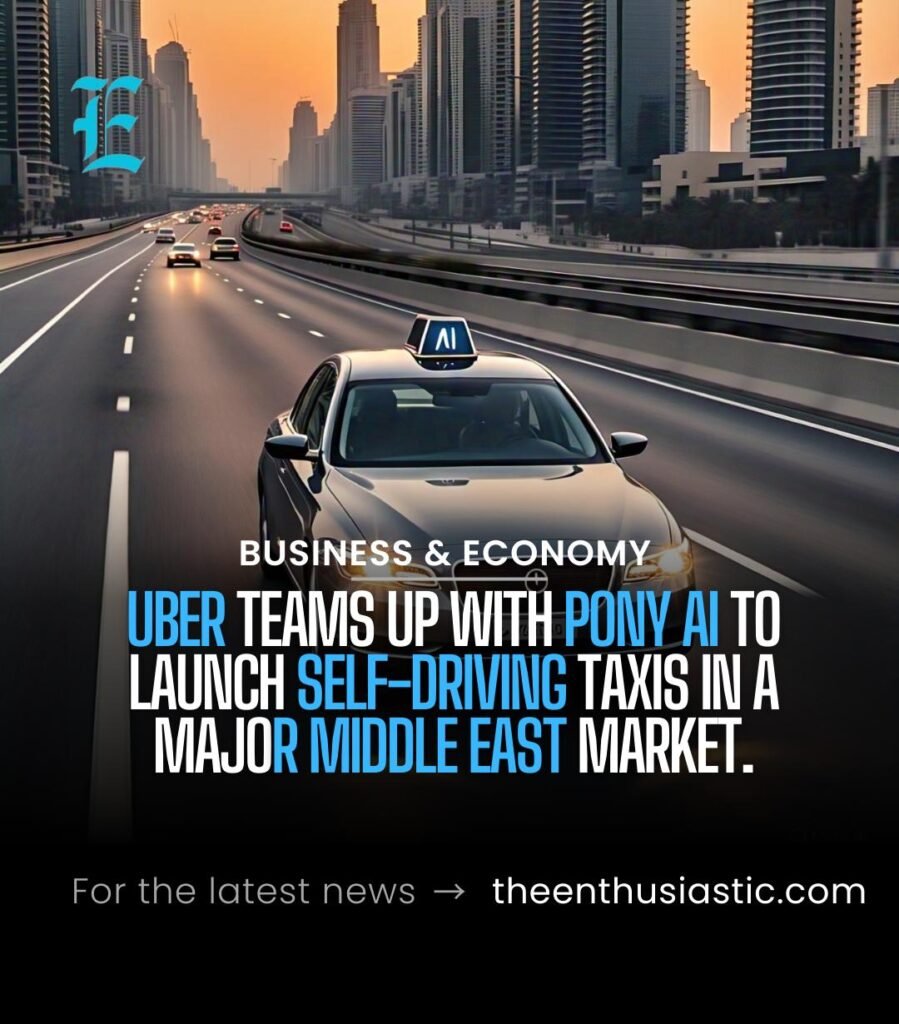Uber Partners with Pony AI to Launch Self-Driving Taxis in the Middle East

Table of Contents
Strategic Collaboration Targets Expanding Robotaxi Market
Uber has announced a strategic partnership with Pony AI, a leading China-based developer of autonomous vehicle technology, to launch self-driving taxis on its platform in a key Middle East market later this year. This move highlights Uber’s continued investment in the robotaxi industry as it competes with major players like Tesla and Lyft.
Middle East Pilot Launch Set for Late 2025
The initial phase of the partnership will involve a pilot program, during which Pony AI’s autonomous vehicles will operate with safety operators on board to monitor and ensure safe operations. Over time, the collaboration aims to transition toward fully driverless rides, setting the stage for commercial deployment.
While the specific Middle Eastern country for the launch has not yet been disclosed, the region’s growing appetite for smart mobility solutions makes it an ideal testbed for next-generation transport technologies.
Part of Uber’s Broader Robotaxi Strategy
This latest partnership with Pony AI reflects Uber’s broader ambition to lead in the global robotaxi race. The company has recently expanded or initiated multiple collaborations to strengthen its presence in the sector, including:
May Mobility for AV deployment in the U.S.
Momenta, a Chinese autonomous driving startup, for international expansion
A deepened partnership with WeRide, now active in 15 global cities
An expanded alliance with Alphabet’s Waymo
These collaborations underscore Uber’s strategy of leveraging multiple AV partners rather than building its own in-house solution.
Market Response and Investor Sentiment
Following the announcement, Pony AI’s stock surged by nearly 13% in premarket trading, signaling investor confidence in the deal’s potential. Conversely, Uber’s shares dipped slightly by 1%, possibly due to broader market factors or profit-taking after recent gains.
Supportive Regulations Boosting Robotaxi Growth
The global robotaxi industry continues to face challenges—particularly in terms of technology reliability, infrastructure, and regulatory hurdles. However, in markets like the United States, the federal government is actively promoting innovation by granting exemptions from certain vehicle safety requirements, while maintaining strict incident reporting protocols.
Such regulatory flexibility is crucial for accelerating the commercial rollout of autonomous vehicles and encouraging further private sector investment.
Outlook: A New Era for Urban Mobility
Uber and Pony AI’s collaboration is more than a technological milestone—it’s a signal of the future of urban transportation. By entering new international markets, especially in regions like the Middle East, Uber is positioning itself to be a front-runner in autonomous ride-hailing services worldwide.
As the partnership evolves, passengers may soon experience driverless rides in major cities, fundamentally transforming how people commute. If successful, this model could expand globally, reshaping the transportation landscape across continents.
